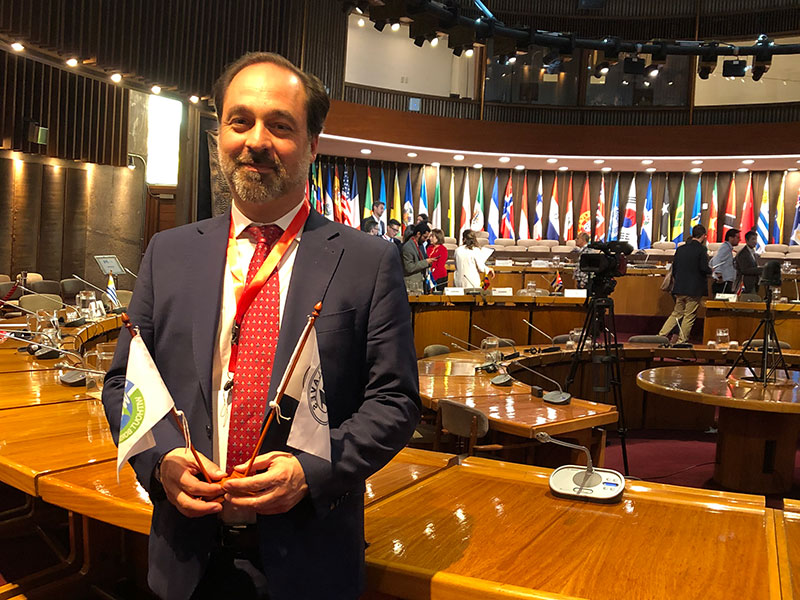MINURVI 2022
Promoting Sustainable Housing in Latin America and the Caribbean
The XXXI General Assembly of Ministers and High Authorities of Housing and Urbanism in Latin America and the Caribbean (MINURVI) took place on December 5th and 6th, 2022, at the CEPAL headquarters in Santiago, Chile. The event, inaugurated by Carlos Montes, Minister of Housing and Urbanism of Chile, who currently presides over the MINURVI Forum (2021-2022), aimed to foster an exchange of ideas and a collective vision on the challenges and solutions in the field of housing and habitat. The discussions were focused on achieving the Sustainable Development Goals of the 2030 Agenda and the New Urban Agenda.
Representatives from 17 countries in the region, including ministers, housing officials, and experts, gathered at the assembly to share experiences, address common issues, and establish commitments. The event was attended by renowned international organizations, including WWB, which actively contributed to the discussions on promoting sustainable housing and fair living conditions.
The agenda of the assembly featured various sessions that covered crucial topics related to housing and urban development. One of the key sessions centered around the role of the state in housing and city production. National authorities presented their experiences and the current situation regarding housing deficits and challenges associated with the existing urban development models. The discussions aimed to explore the role of the state in addressing these issues and identify future directions for effective state intervention.
Another significant topic addressed during the assembly was financing, land markets, and housing. The availability of adequate financing and well-located lands are crucial factors in developing integrated housing and urban policies. Participants discussed strategies and public policies for proper housing project locations, equipped with necessary amenities and services. They also shared experiences on land management, land banks, urban management, and various financing mechanisms, both public and private.
The assembly also emphasized the importance of inclusive cities and the incorporation of a gender perspective and care systems in urban and housing policies. The panel aimed to discuss the conditions that generate gender inequalities in urban and rural habitats and explore how gender and care perspectives have been integrated into the housing policies of each country to address existing inequities.
Furthermore, the event highlighted the significance of cities’ sustainability and their resilience to climate change. The participants acknowledged the need to develop more sustainable and resilient human settlements to mitigate the effects of climate change and achieve the UN Sustainable Development Goals. The panel focused on sharing experiences and solutions in addressing these challenges, particularly in vulnerable areas and for populations with limited resources.

In addition to the informative sessions, the assembly also witnessed the drafting of the Santiago Declaration titled “Transforming and Humanizing the City and Territory.” This declaration captured the key outcomes of the meeting and established commitments towards sustainable housing and urban development.
The MINURVI event, with the active participation of WWB, provided an excellent opportunity to engage with housing ministers and officials from various countries in Latin America and the Caribbean. WWB strengthened existing partnerships and established connections with new ministers, further advancing its mission of promoting fair and sustainable housing in the region.




